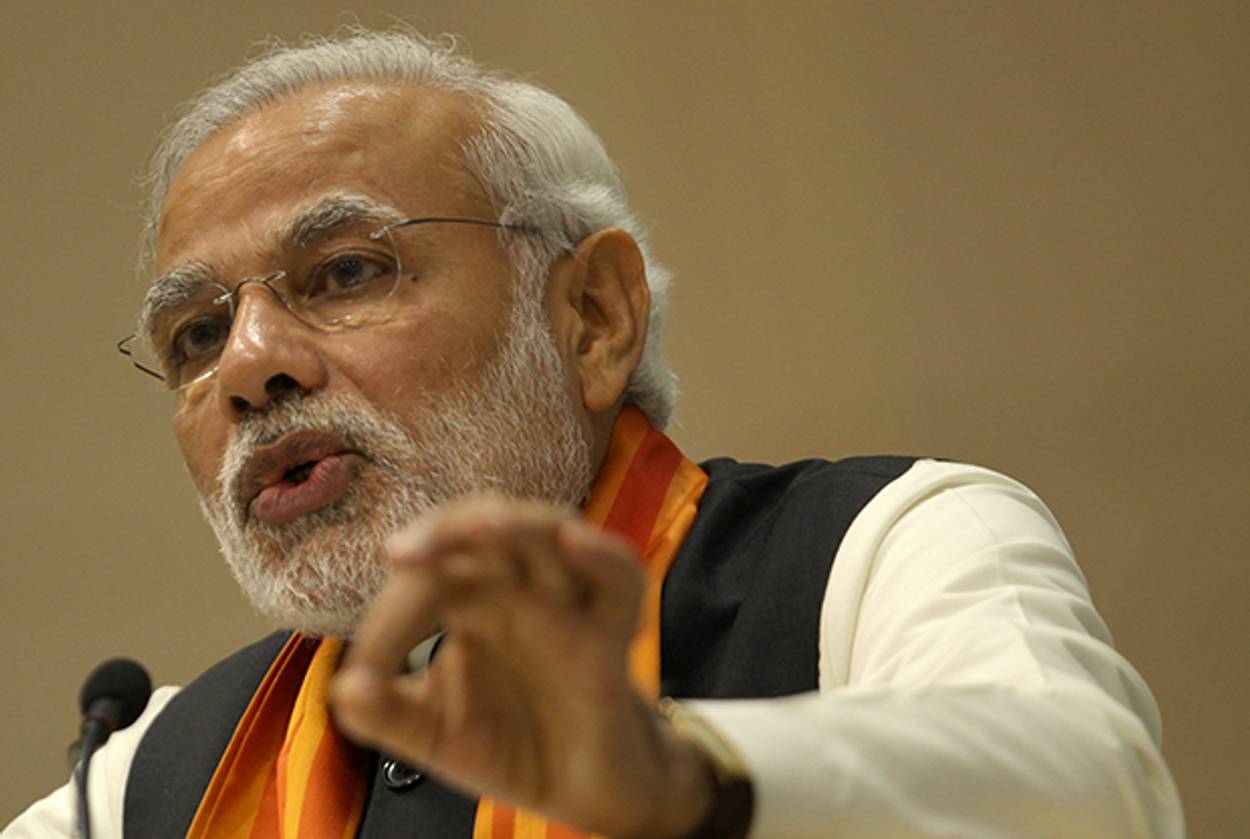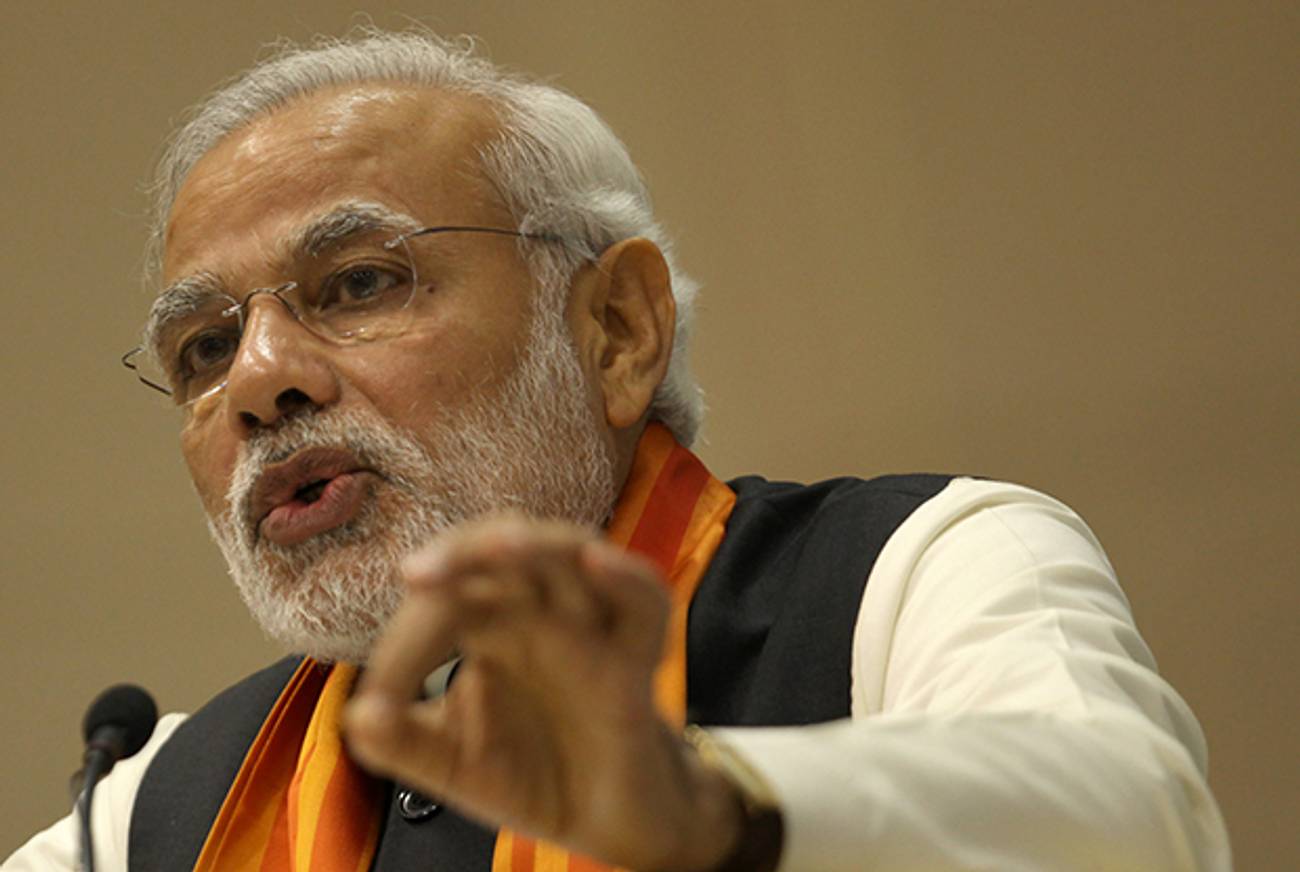India Considers Pro-Israel Stance at the U.N.
The latest sign of deepening ties under India’s new prime minister




India is weighing the prospect of ending its reflexive support of the Palestinian cause in the United Nations, in what The Hindu calls a potential “tectonic shift in the country’s foreign policy.” Several sources within the current government have leaked to the Indian media that the country may switch its U.N. vote on Israel/Palestine issues to an abstention. In the past, by contrast, India has consistently voted against Israel in the global body, dating back to its rejection of the 1947 Partition Plan and support for the notorious 1975 “Zionism is racism” resolution. More recently, even as trade and bilateral ties with Israel have blossomed, India has continued to side with its opponents internationally, and just this past June voted to launch a U.N. Human Rights Council inquiry into Israel’s conduct in Gaza, despite the fact that the mandate failed to mention Hamas and was rejected by the U.S. and European Union.
But under new Indian Prime Minister Narendra Modi, signs of change have emerged. The India-Israel relationship is gradually being brought out of the closet. In September, Modi met with Benjamin Netanyahu on the sidelines of the U.N. General Assembly, in the first such encounter between Israeli and Indian premiers in 11 years. (Modi did not meet with Palestinian President Abbas.) Following that, the Modi government green-lighted several big ticket arms deals with the Jewish state, including one that had been delayed since 2006, and another for which India snubbed a competing offer from the United States. And now, these burgeoning ties may have borne geopolitical fruit at the United Nations.
Undoubtedly, India’s mere consideration of altering its voting at the U.N. will draw intense criticism from Arab governments, much as Australia’s decision to cease referring to Jerusalem as “occupied” did back in June. But as with the Australian action, little of consequence is likely to come from such outrage at India, as these Arab countries have far more pressing concerns on their plates, from ISIS to oil prices. While these governments have always excelled at rhetorically championing the Palestinian cause, when it comes to tangible follow-though–such as contributing their promised funds towards rebuilding Gaza–they have been far less forthcoming.
Meanwhile, another sign of the warming relationship between Delhi and Jerusalem came on Friday, when Prime Minister Modi tweeted Hannukah greetings to his nearly 9 million followers–in both English and, tellingly, Hebrew–garnering retweets from thousands of sympathetic Indians:
Wishing my Jewish friends a Happy Hanukkah! May this Festival of Lights and the festive season ring in peace, hope and well-being for all.
— Narendra Modi (@narendramodi) December 19, 2014
אני מאחל לחבריי בני הדת היהודית חג חנוכה שמח! מי יתן שחג אורים זה, ותקופה זו של חגיגות תבשר שלום, תקווה ורווחה לכל.
— Narendra Modi (@narendramodi) December 19, 2014
To which Netanyahu replied in English and Hindi:
@narendramodi इसराइल राष्ट्र के सभी लोगों की ओर से, आपकी हॅनुक्का की शुभकामनाओं के लिये बहुत बहुत धन्यवाद
— PM of Israel (@IsraeliPM) December 19, 2014
@narendramodi On behalf of all the people of the nation of Israel, thank you very much for your good wishes of Hanukka.
— PM of Israel (@IsraeliPM) December 19, 2014
Should India change its conduct at the U.N., this may turn out to have been the rare Twitter exchange between foreign leaders that marked more than mere political pleasantries.
Previous: The Most Important Thing Netanyahu Did in New York Wasn’t at the U.N.
India Snubs U.S. Missiles in Favor of Israeli Bid
Yair Rosenberg is a senior writer at Tablet. Subscribe to his newsletter, listen to his music, and follow him on Twitter and Facebook.